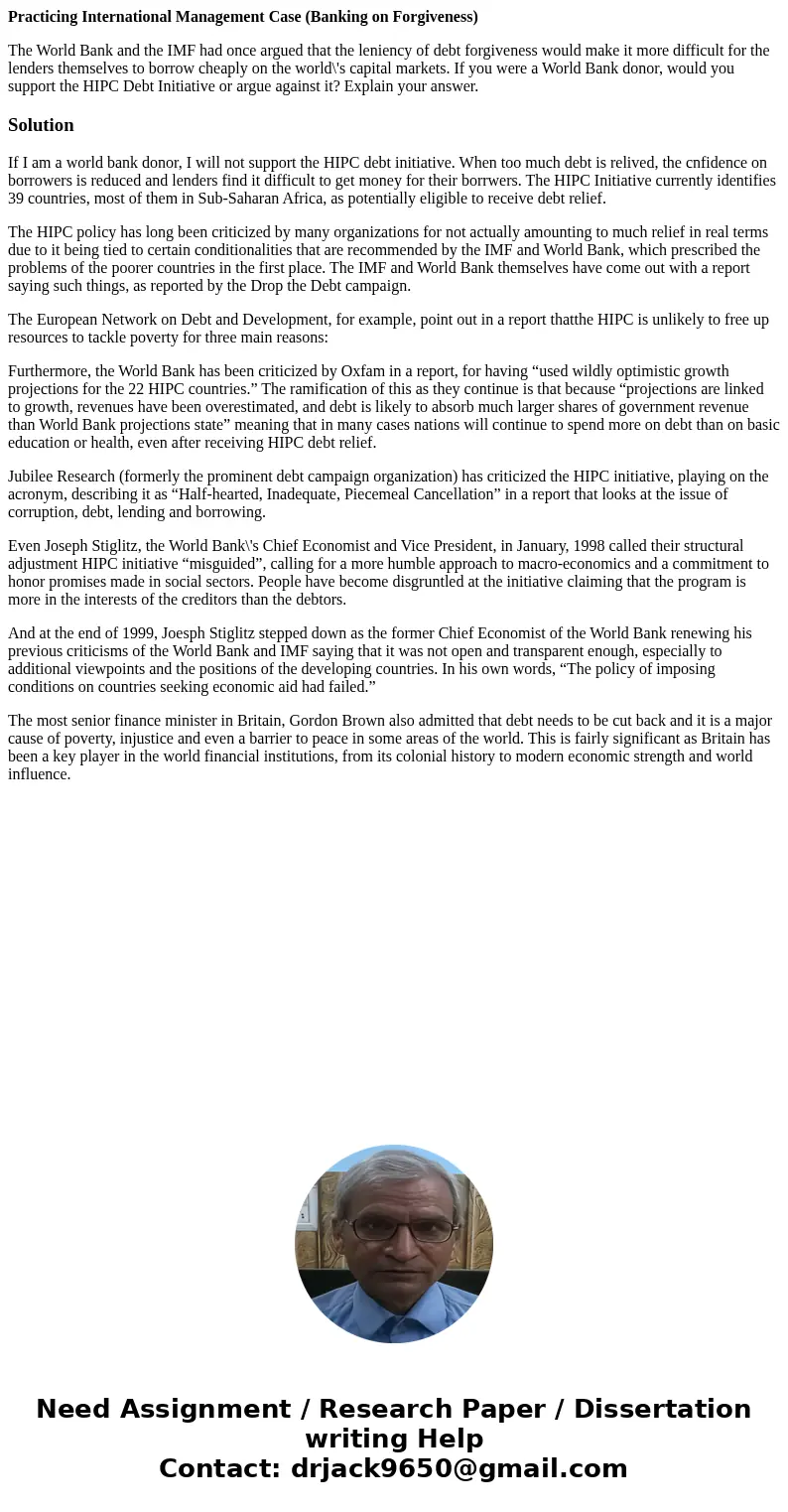Practicing International Management Case Banking on Forgiven
Practicing International Management Case (Banking on Forgiveness)
The World Bank and the IMF had once argued that the leniency of debt forgiveness would make it more difficult for the lenders themselves to borrow cheaply on the world\'s capital markets. If you were a World Bank donor, would you support the HIPC Debt Initiative or argue against it? Explain your answer.
Solution
If I am a world bank donor, I will not support the HIPC debt initiative. When too much debt is relived, the cnfidence on borrowers is reduced and lenders find it difficult to get money for their borrwers. The HIPC Initiative currently identifies 39 countries, most of them in Sub-Saharan Africa, as potentially eligible to receive debt relief.
The HIPC policy has long been criticized by many organizations for not actually amounting to much relief in real terms due to it being tied to certain conditionalities that are recommended by the IMF and World Bank, which prescribed the problems of the poorer countries in the first place. The IMF and World Bank themselves have come out with a report saying such things, as reported by the Drop the Debt campaign.
The European Network on Debt and Development, for example, point out in a report thatthe HIPC is unlikely to free up resources to tackle poverty for three main reasons:
Furthermore, the World Bank has been criticized by Oxfam in a report, for having “used wildly optimistic growth projections for the 22 HIPC countries.” The ramification of this as they continue is that because “projections are linked to growth, revenues have been overestimated, and debt is likely to absorb much larger shares of government revenue than World Bank projections state” meaning that in many cases nations will continue to spend more on debt than on basic education or health, even after receiving HIPC debt relief.
Jubilee Research (formerly the prominent debt campaign organization) has criticized the HIPC initiative, playing on the acronym, describing it as “Half-hearted, Inadequate, Piecemeal Cancellation” in a report that looks at the issue of corruption, debt, lending and borrowing.
Even Joseph Stiglitz, the World Bank\'s Chief Economist and Vice President, in January, 1998 called their structural adjustment HIPC initiative “misguided”, calling for a more humble approach to macro-economics and a commitment to honor promises made in social sectors. People have become disgruntled at the initiative claiming that the program is more in the interests of the creditors than the debtors.
And at the end of 1999, Joesph Stiglitz stepped down as the former Chief Economist of the World Bank renewing his previous criticisms of the World Bank and IMF saying that it was not open and transparent enough, especially to additional viewpoints and the positions of the developing countries. In his own words, “The policy of imposing conditions on countries seeking economic aid had failed.”
The most senior finance minister in Britain, Gordon Brown also admitted that debt needs to be cut back and it is a major cause of poverty, injustice and even a barrier to peace in some areas of the world. This is fairly significant as Britain has been a key player in the world financial institutions, from its colonial history to modern economic strength and world influence.

 Homework Sourse
Homework Sourse